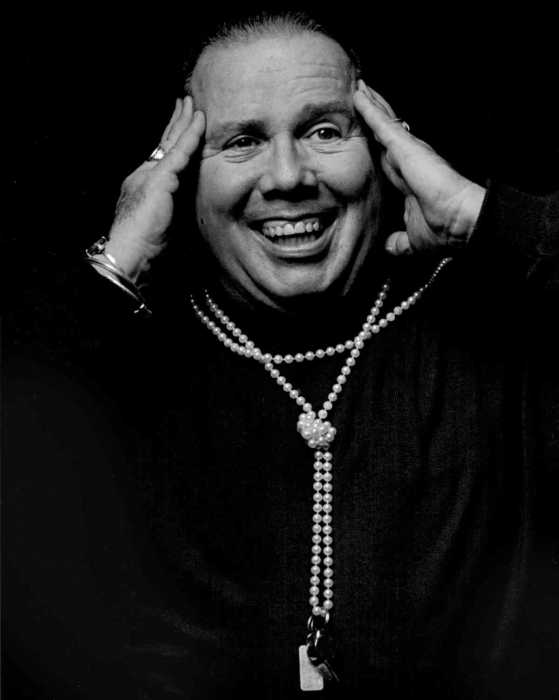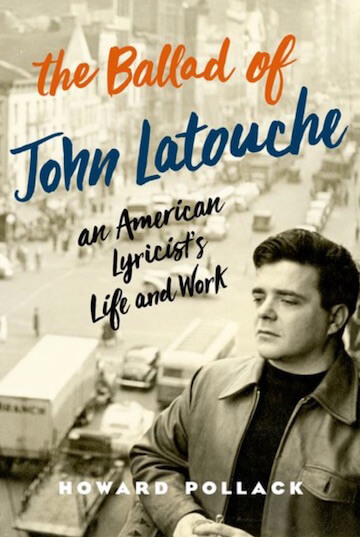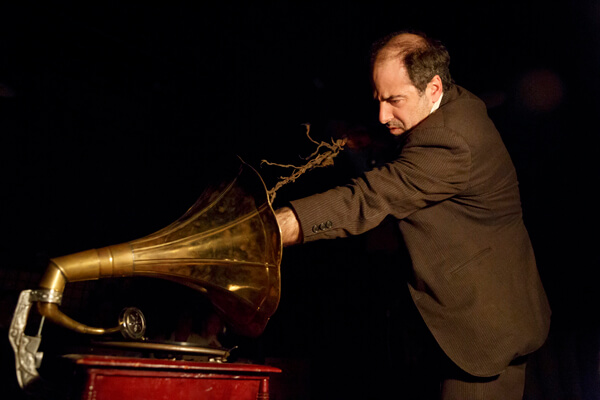Josef von Sternberg’s 1930 “The Blue Angel,” screening May 27, made Marlene Dietrich an international star. | METROGRAPH.COM
Marlene Dietrich, a star of many accomplishments and fecund longevity, was one of the last century’s most remarkable women in having made herself a literal human mirror to history.
In the hometown that she deserted, Berlin, Dietrich is still very much alive — her spirit evoked on many street corners, its museums filled with her artifacts — but she hasn’t been celebrated in this country for years.
To right that wrong, Metrograph is presenting a film series in her honor through July 8, something that holds the promise of making this a more glamorous summer that we’ve seen in years.
Icon of 20th century film takes center screen at Metrograph
No star/ director collaboration was ever more thrillingly consistent than the seven films she did with Josef von Sternberg, who made her a star when he cast her in the international 1930 success “The Blue Angel” (May 27). You can see how he transformed her from the plump, blowsy cabaret singer who though perhaps not as ambitious as Sally Bowles was even more heartless, to a flawlessly gleaming goddess who gave even Garbo a run for her money. (The difference between the two is that Dietrich was fun, fully enjoying her stardom while working with far better directors.
In the rather slow going “Morocco” (May 27) her Hollywood debut, she’s still a tad chunky, but the face is to die for, photographed by genius Lee Garmes, who perfected the “Dietrich lighting,” a high key spotlight that made her cheekbones cavernous. Here is dead sexy, flirting with Foreign Legionnaire Gary Cooper, at his most beautiful and androgynous, and brazenly kissing a female nightclub patron on the mouth while dressed in the men’s tuxedo that was both a scandal and a revolutionary style setter.
“Dishonored” (May 30, Jun. 3) her World War I spy drama, is basically a one-woman show –– what else could it be with character lugs Victor McLaglen and Warner Oland as her leading men? She delivers the goods, starting as a louche street whore who impersonates an innocent, braided Fräulein (showing off her talent for comic mimicry) and winding up in front of a firing squad, the essence of cool as she checks her lipstick in a soldier’s saber blade.
Marlene Dietrich starred with Anna May Wong in von Sternberg’s “Shanghai Express,” screening on May 26. | METROGRAPH.COM
“Shanghai Express” (May 26) was the team’s biggest success, one of Hollywood’s most splendidly exotic entertainments, with her as notorious prostitute Shanghai Lily, who shares a train compartment with the exquisite Anna May Wong (“One of them is yellow and the other is white, but both their souls are rotten!,” declaims an outraged parson).
Von Sternberg was able to create entire, uniquely magical worlds on the Paramount lot, be it a teeming, opium-scented China or 18th century Russia for the lavishly outrageous “The Scarlet Empress” (May 25), with Dietrich as Catherine the Great. Sex was usually the main topic of the director’s films, and he charts the Russian empress’ rise to power as a matter of penis by penis, with future politician John Lodge, rock star handsome with long hair, and insane Grand Duke Sam Jaffe, leering like a death’s head version of Harpo Marx, portraying two of her victims. She ends up possibly mad herself, with all the bells in Russia tolling her royal triumph, as she proudly stands next to her infamous horse. (I first saw this as kid on late, late night TV in Hawaii and wondered if the tropical heat and my fatigue were making me hallucinate certain images.)
Things had to calm down after that, and the couple’s swan song, “The Devil is a Woman” is a quieter, almost chamber piece of a movie, based on the oft-filmed Pierre Louys novel (with a script by John Dos Passos!). I think it’s their best, a sumptuous evocation of Belle Epoque Spain, framing Dietrich as temptress Concha Perez, in Travis Banton’s jaw-dropping layers of lace, fringe, mantillas, high combs, and spit curls. Dietrich favored this one above all because she said she was at her most beautiful in it, but I love her for how funny she is in it — a really sterling and brazenly histrionic high comic performance — hilariously abetted by two priceless character women, Alison Skipworth, as her venal mother, and Tempe Pigott, as a one-eyed female pimp.
But even the so-called throwaway number in the von Sternberg canon, “Blonde Venus,” has considerable merit. Raunchily pre-Code, Dietrich goes from blissful maternal domesticity to whoring in New Orleans and winding up being kept by a very young tyro named Cary Grant. Von Sternberg has fun with and subverts the clichés of the soap opera here, and threw her into the wildest number they ever conceived. To the strains of the licentious “Hot Voodoo” (which gay director John Schlesinger reprised with a drag queen singing it in 1975’s “The Day of the Locust”), a gorilla comes onstage, swiping at the blackface chorus girls. The beast then removes one paw, revealing the most beautiful white hand in all cinema. Yep, ‘tis Dietrich, a full year before “King Kong” made everyone go ape.
Post-von Sternberg, she worked with most of the leading auteurs of her day. With Frank Borzage under Ernst Lubitsch’s sparkling supervision, she made “Desire” (Jun. 4), a creamy Deco soufflé in which she plays the chicest jewel thief, whose black and white Rolls Royces match her Banton ensembles. With just Lubitsch, she did “Angel” (Jul. 8) as an aristocratic British wife who enjoys hanging in a Parisian brothel run by Laura Hope Crews, some 30 years before Buñuel conceived of such a gambit in “Belle du Jour.” In it, she wears what was thought to be the most costly costume up to that time — a gold and jewel-encrusted dinner suit by Banton, which still gets regularly trotted out for exhibitions extolling the unparalleled luxury of Golden Age Hollywood.
Billy Wilder’s 1948 “A Foreign Affair” screens on June 1. | METROGRAPH.COM
Billy Wilder directed her in 1948, in one of her best, “A Foreign Affair” (Jun. 1), which directly addresses the question of who was and was not a Nazi collaborator but in the most acerbically comic fashion. As Erica von Schluetow, cabaret performer, Dietrich is a complex, ruthless, and enigmatic survivor, and poor Jean Arthur, as an uptight American politician come to clean up the ruins of Berlin, is simply no match for her, charming as she always is. Frederick Hollander’s wonderful song “Black Market” captures the essence of the time, and he is seen sardonically accompanying her on it.
She would return to Germany in Stanley Kramer’s “Judgment at Nuremberg” (Jun. 4), as the widow of a Nazi officer who shows the human, yet ambivalent side of those who lost the great war. It’s a stirring, deep portrayal that has never gotten enough credit, especially coming from an actress who defied Hitler by refusing to return to her homeland to become its queen of cinema, and spent the war valiantly entertaining Allied troops near the battleground with a huge Nazi price on her head.
Stanley Kramer’s “Judgment at Nuremberg” screens on June 4. | METROGRAPH.COM
“Stage Fright” (Jun. 3) is her Hitchcock entry, and a sophisticated honey, in which personality, and not suspense, drives the plot. As a huge and hugely narcissistic international star, Dietrich again shows her sly comic chops, especially when dealing with the always slightly annoying and wholesome Jane Wyman (pretending to be her replacement maid), constantly forgetting her name as well as the fact that she may have committed homicide. Murder figured in everybody’s favorite, Wilder’s “Witness for the Prosecution,” as well, and she’s memorable as a suspect, once again showing off that talent for mimicry in a truly startling way. Driven to her wit’s end at one point, she screams “Damn you!” at her accusers, and the fury of her delivery makes you sit upright.
Her appearance in Orson Welles’ brilliant noir “Touch of Evil” (May 25) is the series’ biggest in-joke. Welles and she had known each other for years; he used to saw her in half as part of his magic act during the war. But they supposedly never trysted because he preferred dark women, like her own erstwhile girlfriend, gorgeous Dolores Del Río. Here, she recycled the outré, brownface gypsy makeup she wore in her hit potboiler “Golden Earrings” to become the Mexican madam of a border town cathouse, and, once again, embodied the highest form of camp with her every line and movement. “Honey, you’re a mess,” she tells her bloated ex-lover sheriff (Welles). “You better lay off the candy bars.”
Rouben Mamoulian once said his primary thrust in filmmaking was to create beauty and that he certainly did in “Song of Songs” (May 31), which came in the middle of the von Sternberg collaboration. Based on a warhorse story by Hermann Sudermann, it’s a hoary tale of love and redemption but never less than watchable, as she goes from innocent peasant maid (with that eternal virgin braid across her head) to the most sinful lady anywhere, singing the deliciously sexy “Johnny” in a magnificent Hans Dreier-designed Art Nouveau boite.
“The Lady is Willing” (May 29) is rarely shown and you can see why, as it has Dietrich playing a Broadway star who is overcome with mother love when an orphan baby pops up on her doorstep. Sickening, yes, but she’s charming in this Mitchell Leisen-directed confection, which is rife with his gay sensibility, from the oh-so careful arrangement of the Art Moderne sets to the chichi bare midriff outfits on the chorus boys who surround her in the all-white musical finale. Here, Dietrich wears one of her most fabulous costumes, an Irene sheath completely made of shimmering silver bugle beads. Jamie Lee Curtis engaged to Dietrich’s grandson, J. Michael Riva, for a while and Dietrich gave the dress to her to wear to the 1984 Oscars. Curtis took the classic design and had it shortened with the sleeves removed, turning it into something an office manager would wear during a Reagan administration Christmas party. For a costume fiend like me, that’s a desecration on par with whoever spattered Picasso’s “Guernica” at MoMA. Thank God, the film still exists and is being shown so we can appreciate just a fraction of the infinitesimal care and canniness this star of stars put into her every effort, onscreen and off.
MARLENE | Metrograph, 7 Ludlow St., btwn. Hester & Canal Sts. | Through Jul. 8 | metrograph.com/series/series/85/marlene






































